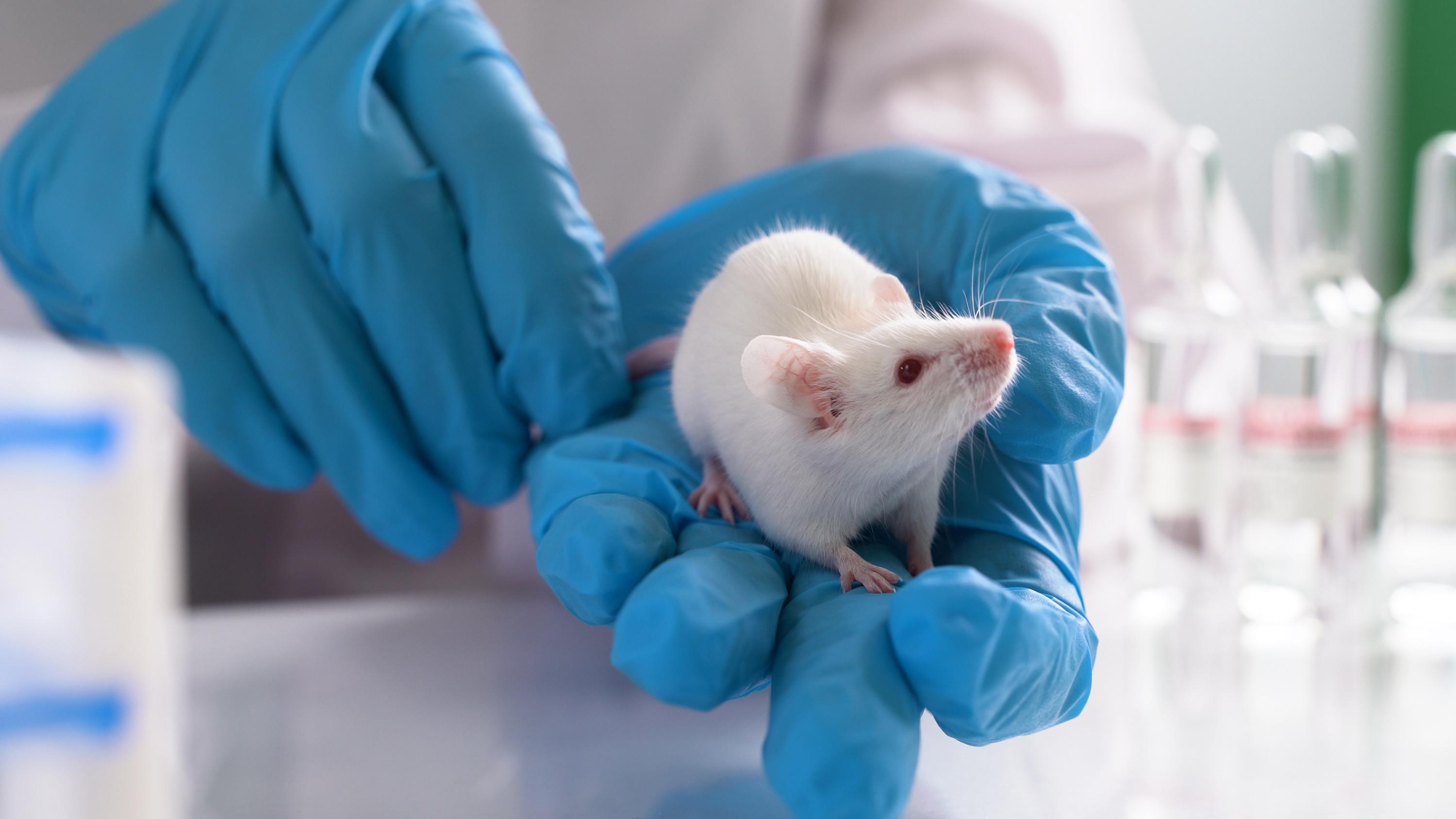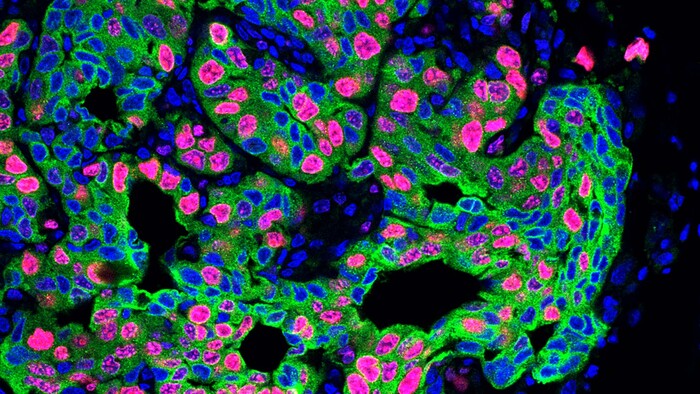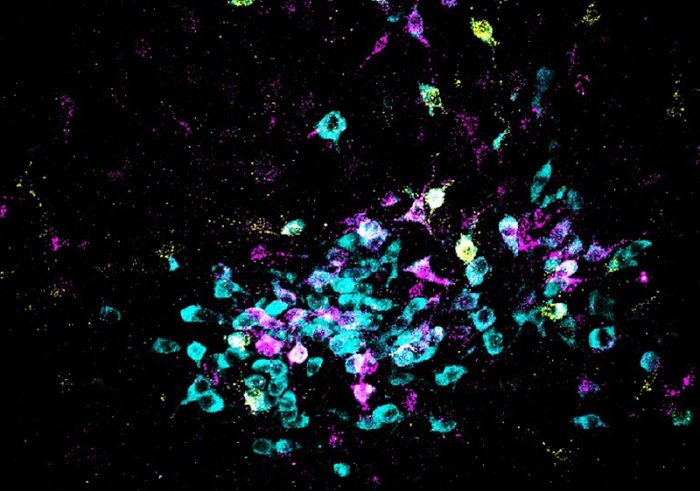As unlikely as it may seem, an anti-cancer drug (a rather toxic molecule) allowed mice without pathology to live longer (
Nature Aging
, January 23).
These results are surprising because the molecule, used against breast cancer, causes many side effects in humans (hyperglycemia, vomiting, etc.).
If for this reason there is no chance that studies will be carried out in humans, on the other hand, the researchers hope that this will make it possible to better understand certain mechanisms of aging.
The team, New Zealand scientists from the University of Auckland, had been working for more than 20 years on cancer pathway inhibitors and already suspected the potential of the anti-cancer drug.
In this new study, the scientists fed two groups of mice with the same diet for several months except that one of them received, in addition, low daily doses of the cancer drug alpelisib, marketed under the name of Piqray.
Results: the rodents who received the treatment not only lived longer, with an average increase of 10% in their life expectancy, but were also in better health at an advanced age.
Transposed to the French population, this would mean that women would live on average up to 93.7 years (based on 85.2 years of life expectancy in 2022) and men up to 87.2 years ( 79.3 years old currently).
” READ ALSO –
What are the secrets of longevity?
Piqray is used in the treatment of breast cancer.
Its active substance, alpelisib, works by blocking the abnormal activity of an enzyme called PI3K (phosphatidyl-inositol-3-kinase).
In healthy individuals, this enzyme plays a crucial role in the growth and communication between cells in our body.
However, certain mutations of the gene coding for this enzyme, the PIK3CA gene, can promote the proliferation of cancer cells: "
it is estimated that activating mutations of the PIK3CA gene represent approximately 40% of breast cancers expressing hormone receptors in women
", explains Luc Cabel, oncologist at the Institut Curie.
"
We have always thought that blocking the PI3K pathway, which is abnormally activated in these breast cancers, could only have beneficial effects on tumor cells since we will destroy them or at least slow down their proliferation", adds
Florence Lerebours, medical oncologist at Curie-Saint-Cloud.
The New Zealand team has been working on drugs targeting the dysfunctional PI3K enzyme for several years, as Professor Peter Shepherd, one of the authors, points out.
With his team, however, he is surprised to see the potential that alpelisib could offer “
in other areas such as age-related diseases
”.
Nevertheless, scientists remain cautious about the possible application of these results to humans.
On the one hand, unsuccessful clinical trials when moving from the animal model to humans are not uncommon.
On the other hand, the mice treated with the drug also showed some side effects.
First, the glycaemia of the treated rodents had increased beyond the thresholds considered normal.
This phenomenon of hyperglycemia could be explained by an abnormal rise in the level of sugar in the blood because the quantity of insulin, a hormone which allows glucose to enter the cells of the body, is not produced in sufficient quantity.
This is particularly what is observed in people suffering from diabetes and obesity.
“
In itself, hyperglycaemia in mice is not surprising because it is also one of the main known side effects of alpelisib in humans
,” notes Luc Cabel.
Among the other effects documented in humans, adds the doctor, there is also severe diarrhea, vomiting, weight loss or lesions in the mouth (mucositis).
Surprisingly, the study researchers also found that the bone mass of the treated rodents had decreased, that is, their bones had become more fragile and less resistant.
In humans, this is not a known complication of alpelisib.
However, it could be likened to osteoporosis, a bone disease that develops naturally with age, particularly in women.
” READ ALSO –
Preventing osteoporosis to reduce the cost of the disease
In any case, to know if alpelisib would have the same benefit on life expectancy in humans as in mice, we would have to carry out clinical trials.
But because of the more or less disabling side effects caused by the drug, doctors are still very reluctant: "it
would be unthinkable to give alpelisib to someone who has no medical reason to take it , just to extend its life.
It would be too dangerous because this drug remains toxic
“Warns Dr. Cabel.
Moreover, even if it may be indicated in the treatment of locally advanced or metastatic breast cancer expressing hormone receptors and with a mutation of the PIK3CA gene, alpelisib is not covered by social security in France because the risk-benefit balance is currently insufficient.
“
In cancer, the inhibition of the PI3K pathway with alpelisib has significant benefits because this pathway is activated in an unusual way.
Inhibiting it in a healthy individual would risk disrupting his entire metabolism
,
”
adds Dr Lerebours.
Indeed, the PI3K signaling pathway is not only involved in pathological processes but also in many cellular mechanisms necessary for the proper functioning of all human beings.
Beyond these effects, the reason why blocking the PI3K pathway prolonged the lifespan of mice remains unclear to researchers, which makes its application to humans even more utopian.
"
It was thought that PI3K inhibitors would have a detrimental effect on longevity because short-term studies have shown deleterious effects, we have seen the opposite, but we do not know why", explains Professor Shepherd
.
This drug is therefore probably not the much hoped-for elixir for eternal youth.
However, this study provides new avenues of research on certain mechanisms found in age-related diseases.



/cloudfront-eu-central-1.images.arcpublishing.com/prisa/65WJB3EG45EZDLAF5QNRLPUDDU.jpg)
/cloudfront-eu-central-1.images.arcpublishing.com/prisa/34VDHFBST5DFLDSXFEQEZRVRBI.jpg)










